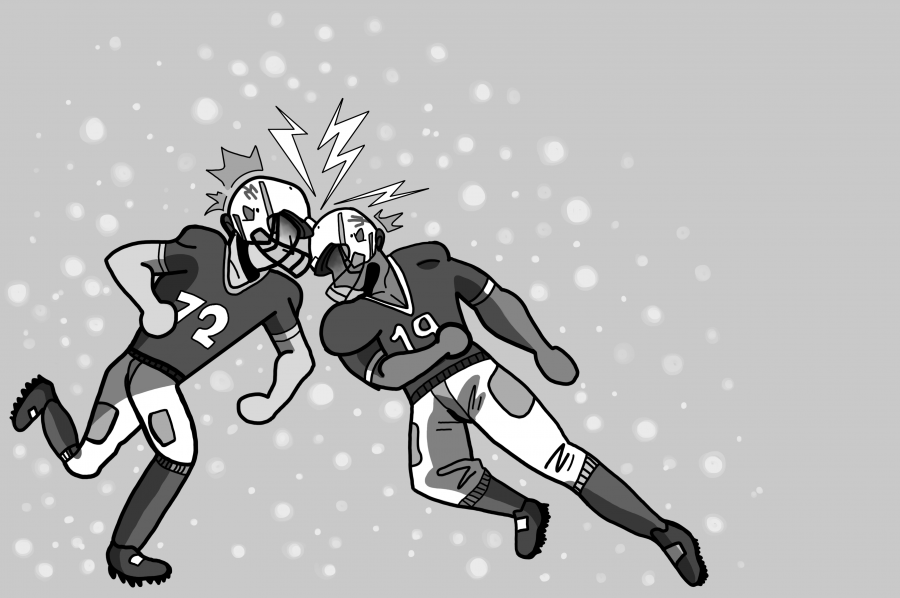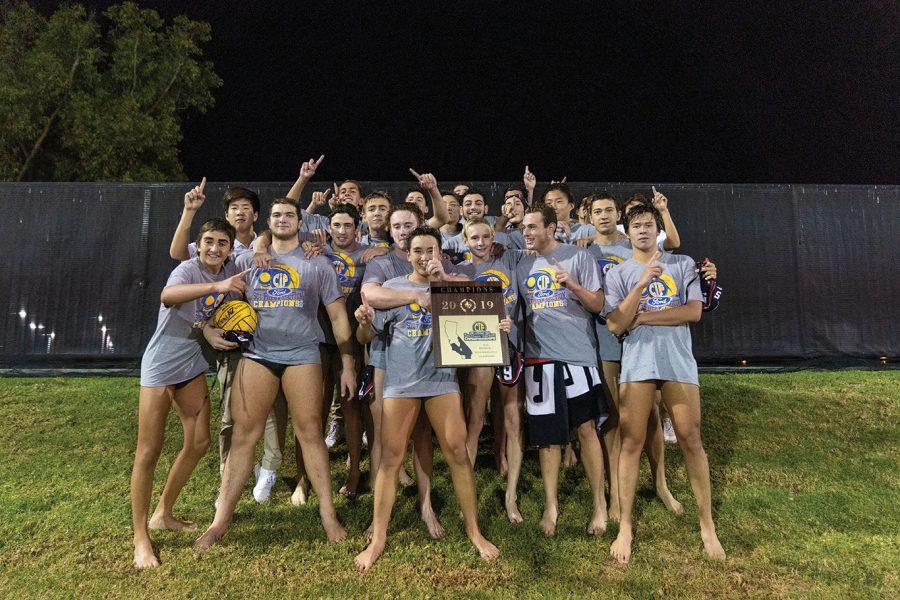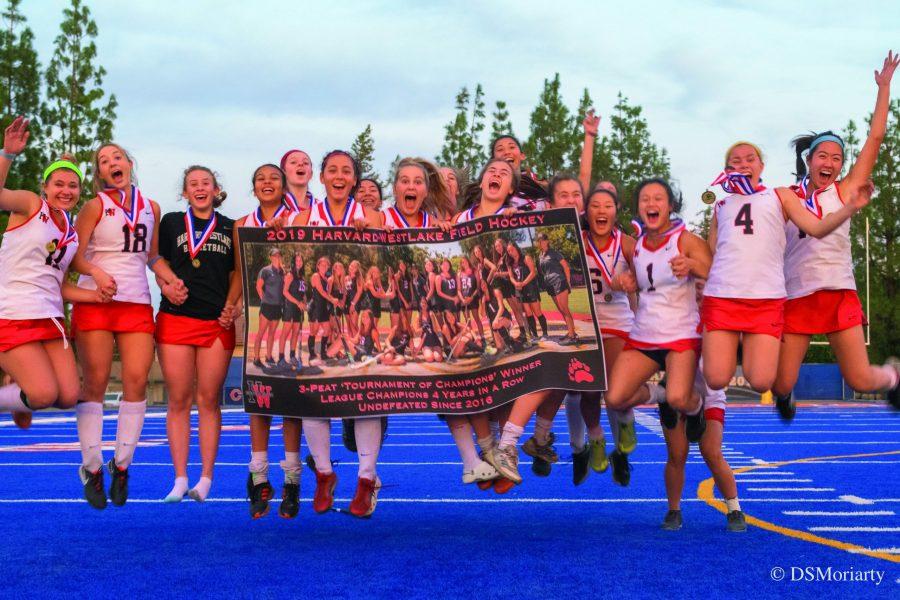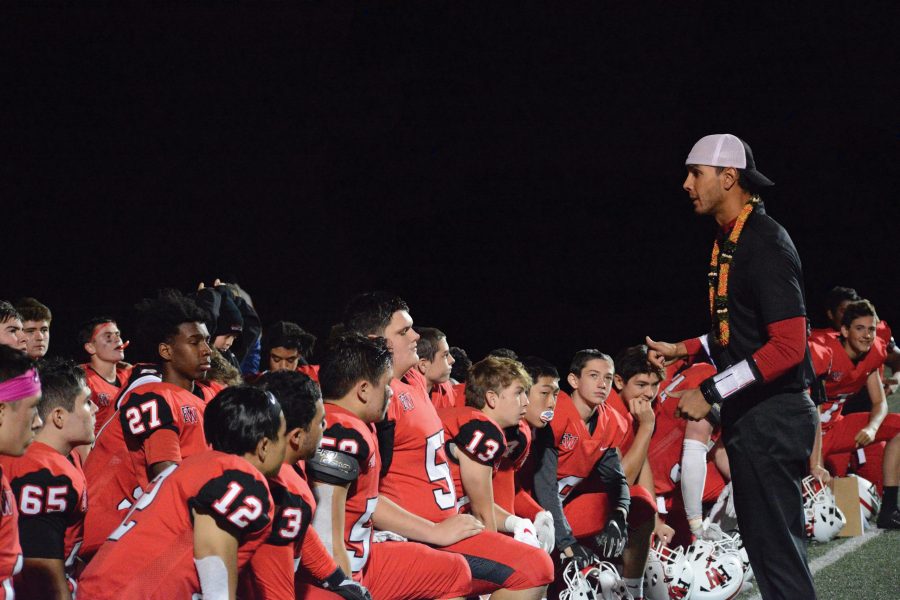It was Sunday morning and his 9:45 a.m. alarm went off. Alec Reece ’20 walked into his closet, threw on his Indianapolis Colts jersey, and immediately checked Twitter for fantasy football updates. For the “Joe Momma” Fantasy Football League consisting of solely Harvard-Westlake seniors, buzzing off your hair, dying it, eating ghost peppers and eating ipecac are just a few of the possible end of the year punishments, according to several league members, including Reece.
“At the end of the season, whoever finishes last will roll a die,” Reece said. If you roll a four, for example, you have to spin our wheel of punishments four times.”
This abundant list of final and weekly punishments can be seen as normal in the world of fantasy football for many fantasy league managers. The creation of fantasy football can be traced back all the way to 1962, where it was created by a partner in the Oakland Raiders organization. The game slowly grew in popularity, eventually spreading to colleges and high schools over the years. However, the game truly took off when CBS created the first publicly available fantasy football website, which led to the development of fantasy football platforms by other sports media sites. Along with the creation of the “The League,” a popular television program about fantasy football that aired from 2009-2015, and the general promotion by the NFL, fantasy football has taken off in the last few years. Today, it is estimated that 59.3 million people play fantasy football, with each player spending roughly $556 per year, according to The Washington Post.
Fantasy Football is a game with participants drafting and managing a team made up of players all around the NFL. As owners of this team, they can trade, release and bench players on their roster. The scoring is based off of their players’ performance in the actual games of the NFL regular season.
As fantasy sports continue to grow, for many NFL fans, their experience watching the game has altered as a result. To Matthew Paul ’21, the rise of fantasy football changed his interest in professional football because he’s invested in keeping up with every team.
“Fantasy has significantly altered the way I watch games,” Paul said. “At times I’ll be watching the 1-6 [New York Jets] vs the 0-7 [Miami Dolphins] and my dad will ask why I’m watching this meaningless game, and I tell him it’s because I have Le’Veon Bell [on my fantasy team]. I’m also a [Pittsburgh Steelers] fan and during commercials I switch to games that have my fantasy players. It has made Sundays a lot more entertaining and enjoyable beyond just watching my team’s game.”
For Marshall Howe ’21, fantasy football has made him watch the regular season, despite not even supporting a NFL team, highlighting its appeal to neutral fans.
“I’m not a big fan of any NFL team so fantasy gives me a reason to watch and care throughout the regular season,” Howe said. A culture has grown around fantasy football that allows fans to follow the NFL in a whole new way, according to Brendan Kang ’20. Kang said that having players from multiple teams keeps fans invested in almost every game and glued to the TV on Sundays.
“My friends and I use fantasy football as a fun and exciting way to follow NFL games and to root for our favorite players,” Kang said. “I know for some people, they devote weekends and school nights to perfect lineups. I believe at our school, many [students] casually set lineups the night before and hope for the best.”
In most leagues, participants compete for a pool of money, which is given to the top finishers at the end of the season. Recently, leagues have introduced weekly and seasonal punishments as a prize for those who don’t finish last in the league. Punishments can range from embarrassing costumes to having to shave one’s legs, according to Reece.
“Every week the person who scores the lowest amount of points must take on a punishment that’s chosen by the commissioner, but we normally take a vote,” Reece said. “If it’s something we don’t want to do I’ll say no and veto it. If you don’t want to do it, you can also buy out for 35 [dollars]. So far, out of 10 weeks, two people have bought out. One of them was to run a mile after eating a cheeseburger and milkshake.”
If you don’t follow the NFL closely, you can find yourself losing games because of poor management, Jason Thompson ’22 said.
“I’m not doing so well because I’m having an off season and we have two weeks left before the playoffs,” Thompson said. “This season, injuries were really bad and I got screwed by not checking players’ injury statuses prior to games. Sometimes, I would start players who were questionable and forget to take them out of the lineup if they were ruled inactive.”
Players who manage their time prove that it is possible to be successful in fantasy football and stay on top of their grade, Howe said.
“Fantasy [football] is something fun for my friends and I to play and talk about together, which we do inside of school as well as out,” Howe said. “It doesn’t have a huge impact on my school work.”
It is easy to get discouraged if you do not start the season off strong which can result in complex alliances, AJ Holmes ’22 said.
“I am 2-8 because I had good players and because there are two stacked teams in the league,” Holmes said. “I traded away [Todd Gurley], [Patrick Mahomes II], and another guy so I can get $10 out of the $50 pot. I play in an eight person league. I was off to a bad start and I was 0-2. I also don’t care so much about fantasy so I figured I’d rather win $10 than win in fantasy,” Holmes said.
In addition, fantasy football participants say that the commissioner plays an integral role in the league’s level of enjoyment.
“It’s very important to have a commissioner that can manage the problems in a league because otherwise there will be a lot of arguments among the players and that will not make the league fun,” Bennett Markinson ’21 said. “I once had a commissioner who vetoed every single trade, which made that year not as fun.”
Despite fantasy football engaging players throughout the season, the key to winning championships is dominating the draft, according to Alex Mogollon ’22. These take place before the NFL regular season starts and are conducted in a similar manner to the NFL Draft.
While most leagues draft online via their platform’s website such as ESPN, others at school believe in more complex drafts that are offline with everyone together in the same place. Spencer Felix ’21 discussed why he prefers to draft in person rather than online.
“While it does take more time, I prefer drafting in person because of the real time in person reactions everyone has to each other’s picks,” Felix said. “I enjoy hearing what my league members think about my picks and when others doubt my team and my decision making, so I can prove them wrong.”
For some leagues, it is difficult to organize a live draft so they conduct an online draft using a website like ESPN, Thompson said.
“During our draft, a lot of people were doing homework because we did it when school started, but as soon as a controversial pick was made, everyone started spamming the chat,” Thompson said. “It was a lot of fun to hop in that chat.”
A lot of strategy goes into the draft, especially when choosing which players to pick early and who to acquire later, Thompson said.
“This year we did a snake draft and I had the number one pick,” Thompson said. “I think it’s crucial because I got the first and last pick. I took [Alvin Kamara] with the first pick and he was out for one-third of the season.”
Fans of particular NFL teams may tend to draft players who may not be objectively the best pick, Thompson said. “It was a pretty easy first pick because it came down between [Alvin Kamara] and [Saquon Barkley] and I knew I would watch all the [New Orleans Saints] games, so I would be more involved in the games,” Thompson said. “It’s difficult to remain objective when you have a favorite team.”
Over time, as fantasy football has increased in popularity, and the way in which it is played has also changed in many ways. Recently, Daily Fantasy Sports (DFS), a type of fantasy football where players change week to week rather than every season, has become more popular.Websites also have gambling features which make it an easy way to win money for one’s football IQ. Daily fantasy sports player Jaesan Emeret ’21 describes why he chooses to play this type of game instead of the traditional seasonal fantasy football.
“DFS sites like DraftKings are better than a traditional fantasy league as you are able to redraft your team after every night, or after every week,” Emeret said. “In a regular league, an injury or two could end your season in only a few weeks , whereas [in] DFS an injury might only ruin your chances for one week. I like this because injuries are a byproduct of professional sports that fantasy players are not able to control.”
Although many people at Harvard-Westlake enjoy fantasy football, Matthew Lee ’21 describes why he chooses not to play this game.
“I don’t like to play fantasy football because it takes a lot of time and I would prefer to watch my favorite team and exciting games instead of just rooting for specific players that have good stats,” Lee said.
Despite the rise of Daily Fantasy Sports and the many problems that a league may face, Mogollon said that fantasy football is a great overall social experience.
“Normally you follow your favorite team, but by following fantasy football, you are able to watch more games on Sunday,” Mogollon said. “Fantasy football makes [the NFL] fun for everyone by engaging people with sports, especially with football.”






































